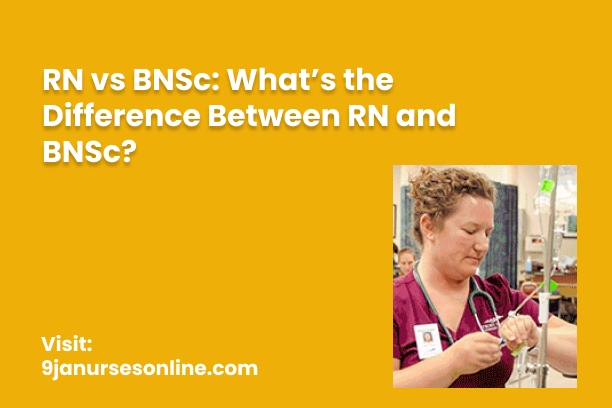Nursing as a career path offers a wealth of specialties and paths, from nursing at the bedside to research, education, executive leadership, and more. Depending on the path you choose, you may need different certifications and even levels of education. One question aspiring nurses often ask as they explore their options is, ‘What is the difference between RN Vs BNSc?
Below, we break down the difference between RN Vs BNSc and explore what path might be the best choice for you.
Difference Between RN Vs BNSc
When comparing RN vs BSN, first know that we are talking about a licensure versus a level of education. Let’s dive into this main difference between RN and BNSc further: While school of nursing is a three-year program that ends with a Registered Nurse (RN/RNM), which is essentially a certificate, university nursing is a five-year program that awards a Bachelor in Nursing Science (BNSc) degree. RNs are lower on the nursing hierarchy than BNScs.
What is an RN?
A registered nurse (RN) is a nurse who has completed all educational and examination requirements, and has been licensed to practice nursing in their country. You will also see ‘registered nurse’ as a job title or position.
The first step to become an RN is to earn a diploma in nursing, an associate degree, or a bachelor’s degree. Once completed, RN candidates sit for the council exam by Nursing and midwifery Council Of Nigeria NMCN. Registered nurse candidates apply for licensure in the country where they intend to practice, once testing and education requirements have been satisfied.
What is a BNSc?
The main difference between RN and BNSc is that a Bachelor of Nursing Science (BNSc) is an educational degree, rather than a licensure or job title.
Nurses can earn a BNSc in one of two ways. You can pursue a BNSc and RN at the same time through an entry-level program like 3-Year BNSc degree. Alternately, you could become an RN through a diploma and later return to school to complete your BNSc through an RN to BNSc
So what is the difference between RN and BNSc? In a nutshell, a BNSc is the degree you earn. RN is the licensure you are granted through your country.
READ THIS: Specialized Nurses Can not work Anywhere, Except Under Certain Conditions
Increasingly, a BNSc is becoming the degree of choice for other reasons as well. Let’s further explore the difference between RN and BNSc:
The Difference Between RN and BSN: Final Analysis
The key thing to remember when thinking about RN vs BNSc is that a RN is a licensure granted by your state to practice nursing. A BNSc is your level of education – and one that is increasingly being seen as the future of nursing.
Frequents Ask Question
Is RN equivalent to BSc nursing?
BSN, ADN, RN: The Difference in The Letters
ADN stands for associate degree in nursing, RN for registered nurse, and BSN for bachelor of science in nursing. The 4-year BSN curriculum culminates in a diploma: A BSN holder is a recent graduate of a four-year college, university, or nursing program.
What is BNSc in nursing science?
The Nursing and Midwifery Council of Nigeria grants professional qualifications, registration, and licensure to graduates of the BNSc Nursing program. Students enrolled in this patient-centered program will gain practical experience in a variety of healthcare settings through a combination of theory and clinical practice.
Which is better RN or BSc nursing?
Compared to a registered nurse (RN) with merely an associate’s degree in nursing (ADN), an RN with a bachelor of science in nursing has additional career options. Because there is a greater demand for BSN graduates, registered nurses with these degrees have more career opportunities, which in turn raises their compensation.
Conclusion
While school of nursing is a three-year program that ends with a Registered Nurse (RN/RNM), which is essentially a certificate, university nursing is a five-year program that awards a Bachelor in Nursing Science (BNSc) degree. RNs are lower on the nursing hierarchy than BNScs.



